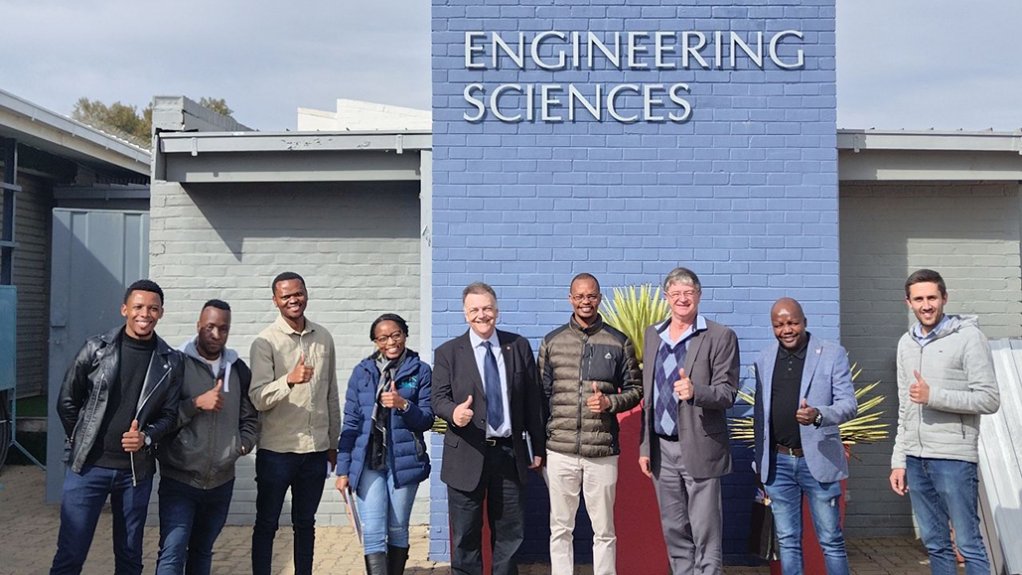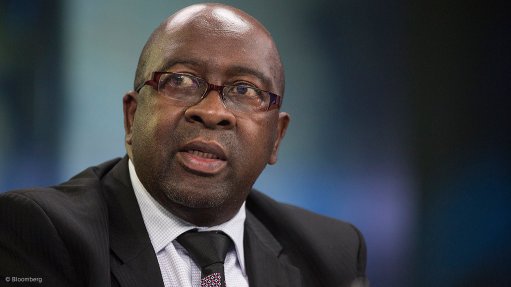Mentorship programmes necessary
Maintaining a sufficient number of capable engineers, technologists and technicians to meet the demands of the South African civil engineering and construction industry requires relevant training and mentorship programmes to develop competence among graduates.
These programmes will equip graduates with the necessary skills to perform the required professional activities and meet the standards set by statutory body, the Engineering Council of South Africa (ECSA), says industry body the South African Institution of Civil Engineering (Saice) president Steven Kaplan.
While there is no shortage of engineers, technologists and technicians in South Africa, there is a shortage of experienced, professionally registered practitioners.
“Graduates need to be exposed to a range of activities in the engineering life cycle, appropriate to their organisation and discipline. With formalised mentorship programmes, detailed activities are planned to ensure that candidates are functionally competent to meet the requirements of ECSA, and can perform the type of work carried out by their employer.”
To this end, overarching body the Council for the Built Environment defined the scope of work for categories of registration – which was published in July 2020 and regulated by the ECSA – highlighting the need for integration and balance among the skill sets of engineers, technologists and technicians in the local industry.
Moreover, research conducted by nonprofit organisation Saice Professional Development and Projects has revealed a displacement of the older, experienced and professionally registered practitioners between the ages of 45 and 60 in local government.
Senior experienced practitioners have been replaced by younger, less experienced technologists and technicians, thereby creating an imbalance in the profile of skill sets required for effective service delivery.
“Their leaving means that the incoming graduates do not have anyone in the workplace to provide a structured mentorship programme, which is essential to develop their skills in service delivery and to guide their careers towards professional registration,” Kaplan laments.
Owing to local governments’ responsibilities, this imbalance leads to inadequate long-term planning, routine maintenance and budgeting.
Saice aims to facilitate the rebalancing of skill sets by encouraging local government to reengage experienced professionals.
In so doing, professionals can drive the establishment of short- and long-term planning and budgeting; manage development and building control; handle emergencies and planned maintenance; manage designs and contracts; and redevelop systems and processes.
“It is critical that the public sector, especially local government, position themselves as the employer of choice for civil engineering professionals.”
Competent professional engineering practitioners should consider the technical aspects of construction, as well as the environmental, social and economic factors, which will provide long-term value to community and industry members, he adds.
Understanding the Infrastructure Landscape
Saice published its fourth Infrastructure Report Card (IRC) in November 2022.
The IRC focuses on the condition of existing infrastructure and its impact on service delivery, quality of life and economic development of South Africa, as well as the need for adequate maintenance and repair.
It examines the factors that have led to the current state of local infrastructure, with Kaplan explaining that understanding the upward or downward trends, and the factors contributing to them, is also necessary.
“SAICE will continue to be the custodian and author of the IRC because we are duty bound to comment. Society entrusts the provision and care of infrastructure to civil engineers above any other profession or group. On balance, civil engineers are best prepared to holistically advise the nation on priorities, cost-benefit considerations and innovations in service delivery.”
In this vein, the institution established the IRC Working Group to ensure that the institution is established as a “thought leader in all things infrastructure”.
Further, Saice aims to continue with its Growing Forward strategy to sustain the growth and development of its members and to provide for their engineering interests and needs. The institution aims to facilitate a sustainable quality of life, together with the responsible use of natural and human resources.
“Saice’s objective is the promotion of the general advancement of the science and practice of civil engineering while fostering transformation in the civil engineering sector through skills and professional development,” Kaplan concludes.
Comments
Press Office
Announcements
What's On
Subscribe to improve your user experience...
Option 1 (equivalent of R125 a month):
Receive a weekly copy of Creamer Media's Engineering News & Mining Weekly magazine
(print copy for those in South Africa and e-magazine for those outside of South Africa)
Receive daily email newsletters
Access to full search results
Access archive of magazine back copies
Access to Projects in Progress
Access to ONE Research Report of your choice in PDF format
Option 2 (equivalent of R375 a month):
All benefits from Option 1
PLUS
Access to Creamer Media's Research Channel Africa for ALL Research Reports, in PDF format, on various industrial and mining sectors
including Electricity; Water; Energy Transition; Hydrogen; Roads, Rail and Ports; Coal; Gold; Platinum; Battery Metals; etc.
Already a subscriber?
Forgotten your password?
Receive weekly copy of Creamer Media's Engineering News & Mining Weekly magazine (print copy for those in South Africa and e-magazine for those outside of South Africa)
➕
Recieve daily email newsletters
➕
Access to full search results
➕
Access archive of magazine back copies
➕
Access to Projects in Progress
➕
Access to ONE Research Report of your choice in PDF format
RESEARCH CHANNEL AFRICA
R4500 (equivalent of R375 a month)
SUBSCRIBEAll benefits from Option 1
➕
Access to Creamer Media's Research Channel Africa for ALL Research Reports on various industrial and mining sectors, in PDF format, including on:
Electricity
➕
Water
➕
Energy Transition
➕
Hydrogen
➕
Roads, Rail and Ports
➕
Coal
➕
Gold
➕
Platinum
➕
Battery Metals
➕
etc.
Receive all benefits from Option 1 or Option 2 delivered to numerous people at your company
➕
Multiple User names and Passwords for simultaneous log-ins
➕
Intranet integration access to all in your organisation





















